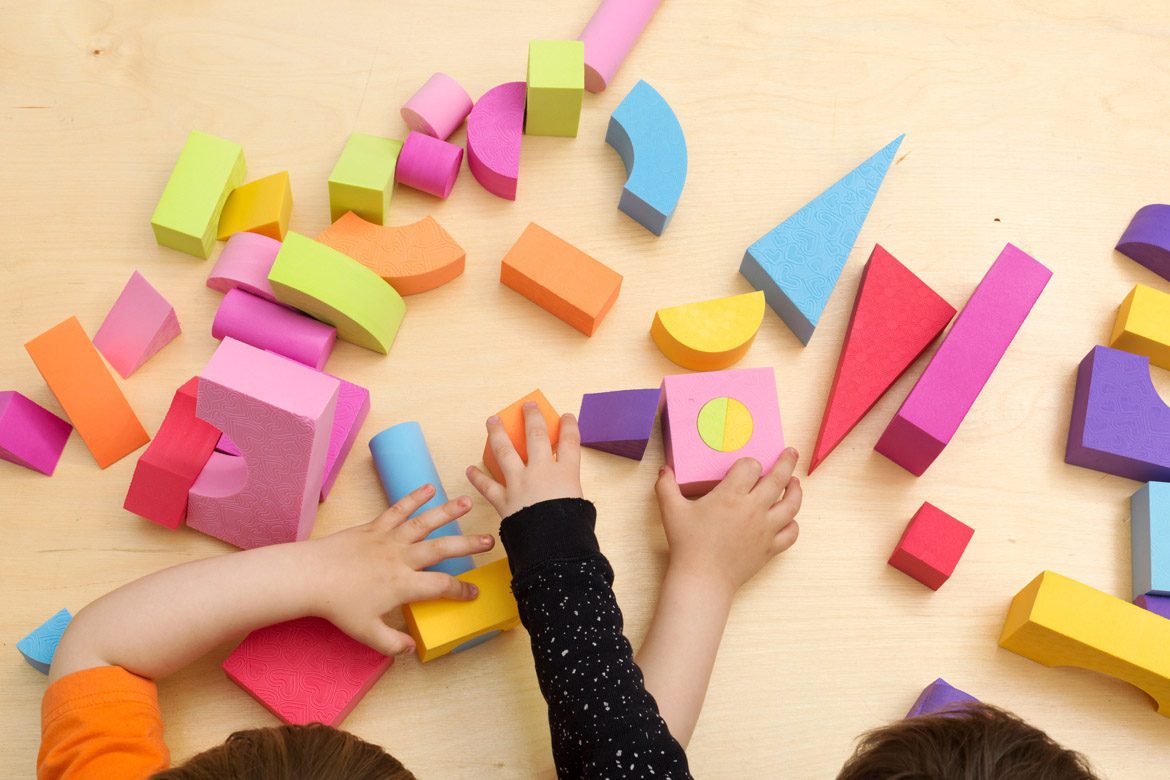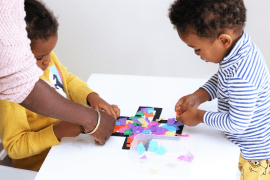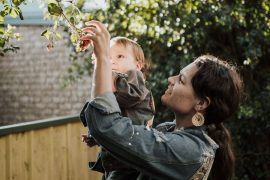By Amanda Just
Have you ever wondered why some kids are inventive and others can’t create anything new? Watching my kids play got me wondering how early innovation and creativity starts and how I can help them to be creative, innovative, risk-takers in life.
Let’s look at how children learn. Children learn through all their senses: touch, taste, hearing, sight and feeling. Not only that, they need an understanding of the basic skills to be able to innovate. That is the key: a basic set of skills. Giving children these building blocks as well as an understanding of how it’s been done in the past, allows them to become creative in their own designs. It actually starts very young.
Children as young as 2, 3, and 4 years old can be excellent innovators as they play to learn how the world works. This is where innovation starts, by people exploring new concepts and ideas from old knowledge. Children’s playtime is filled with this type of exploration.
Playing develops many of the basic skills we need in life, such as gross motor skills (jumping, skipping, climbing, digging), fine motor skills (drawing, picking up things with our fingers), social skills (role playing, pretending), and discipline (trying again and again to get something right). The quicker we can learn the basics, the quicker we are able to start to innovate and explore new directions, maybe ones that no-one else has discovered yet.
Innovation starts with play. Let your little one play with you and show them all the different ways that they can do one thing. I know whenever I need to do some handyman work at my house, the first thing I do is look on YouTube for a video on how it can be achieved. I watch lots of different videos and by using these basic skills I can fix my problem in the quickest, most accessible way in my situation. However, this can only be done if I know the basics.
We need to do the same for our kids. Once they know the basic skills and knowledge, then they can create something uniquely special. Sometimes these unique creations arise from a need, such as having no access to the right tools. So you need to innovate with what’s at hand (using a piece of bark to dig the sand).
Young children have an insatiable appetite for the curious. They love to explore. Giving them the basic building blocks of knowledge and skills quickly can help them to start to innovate their particular problems.
See next page for more…











